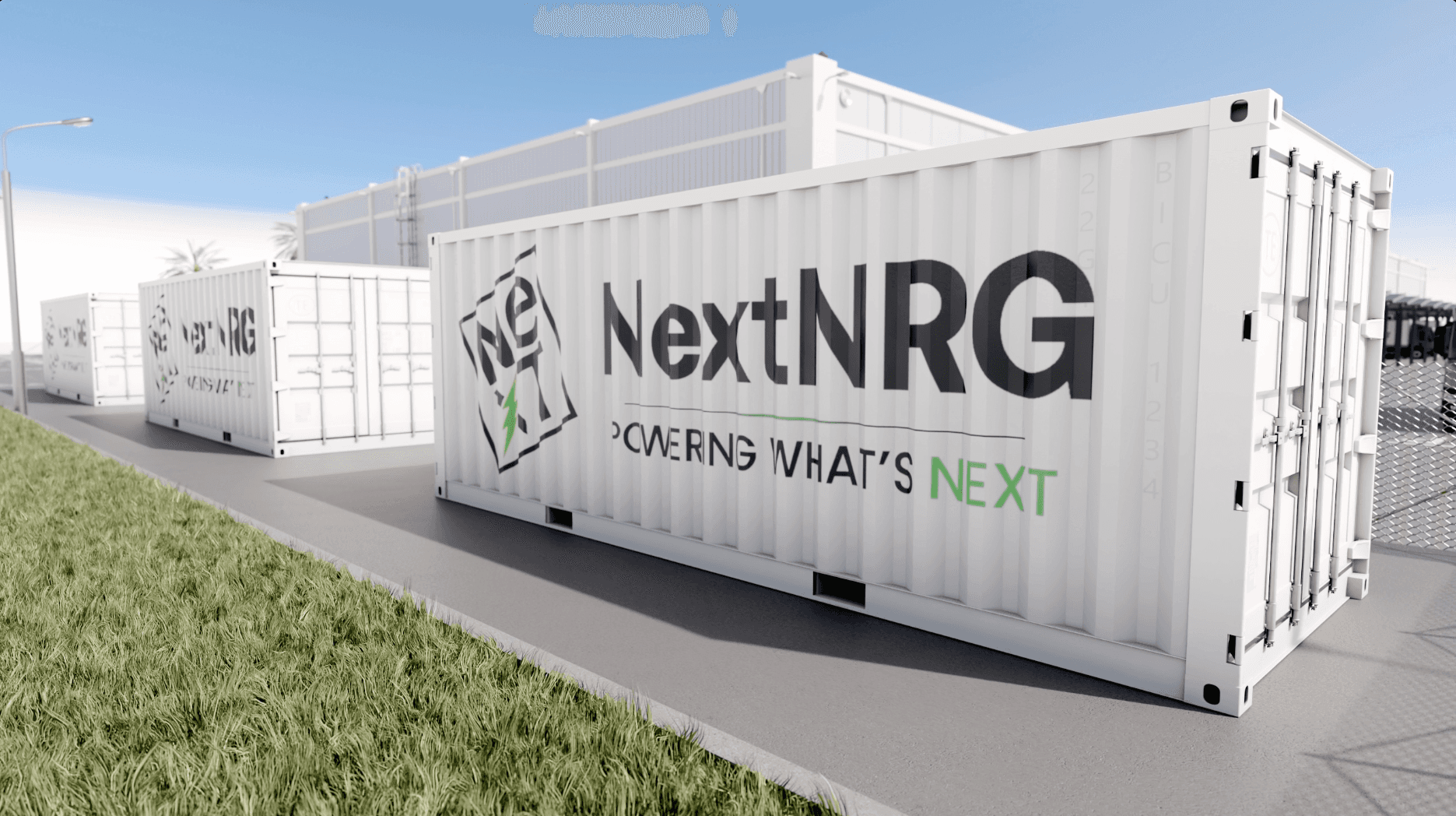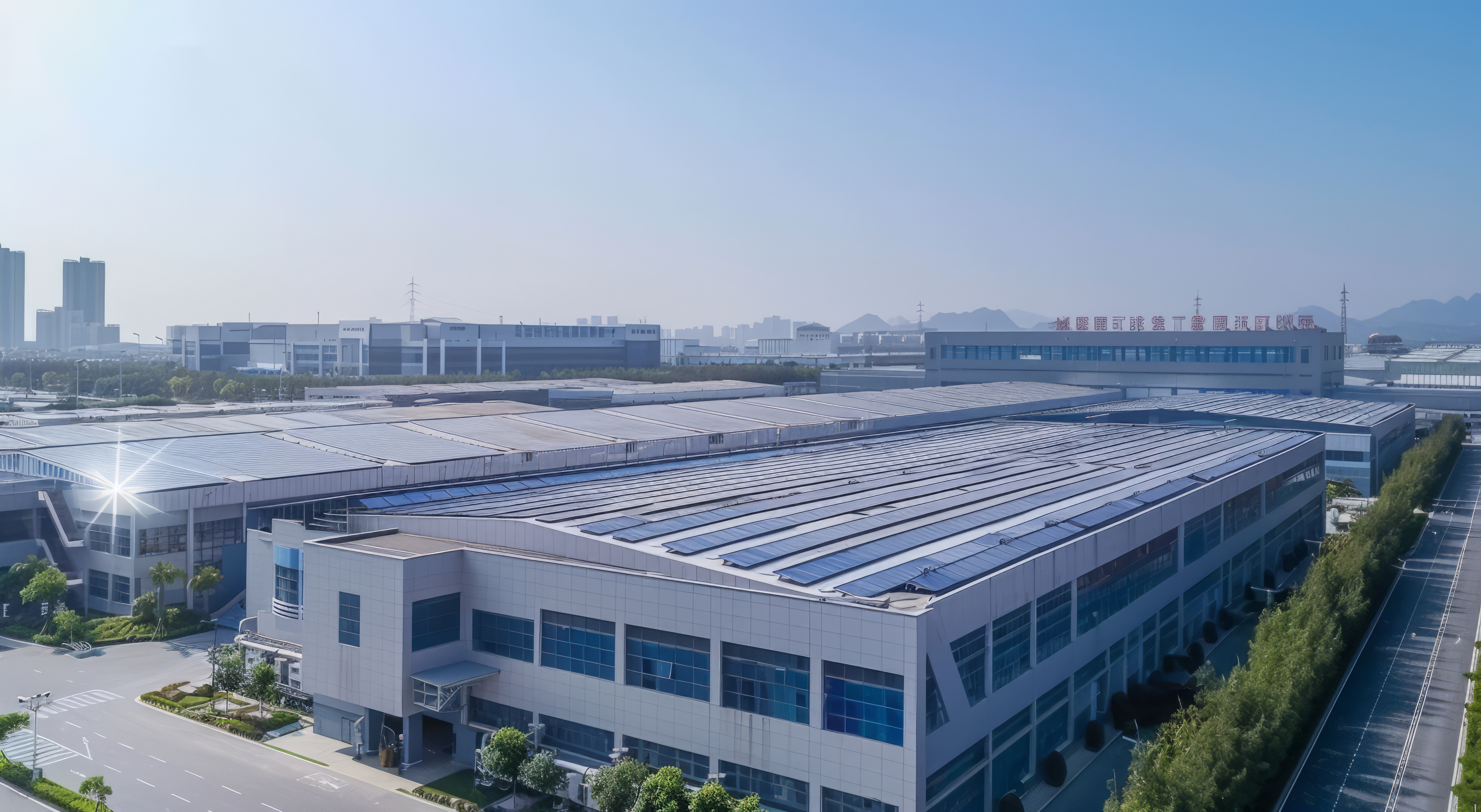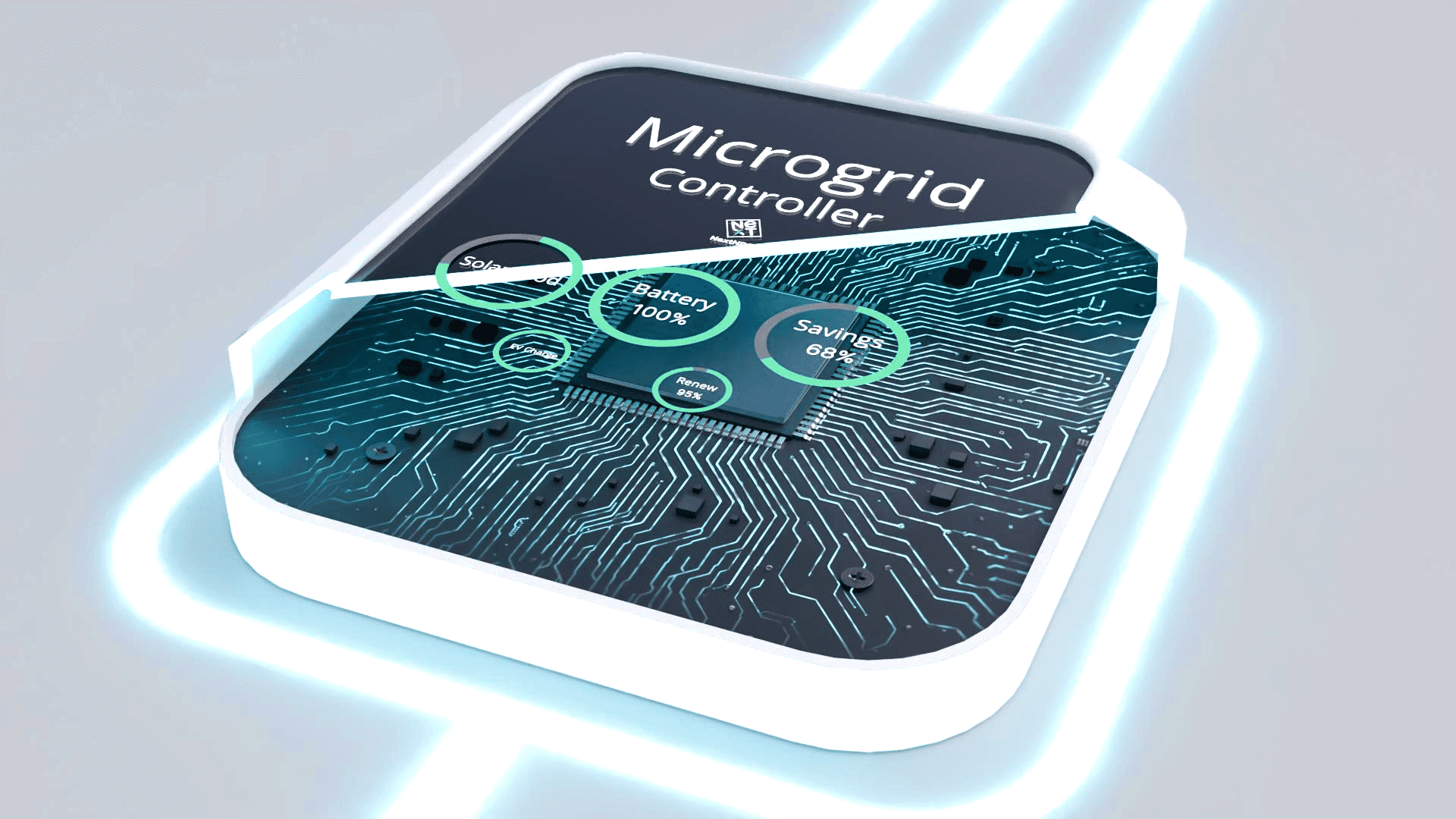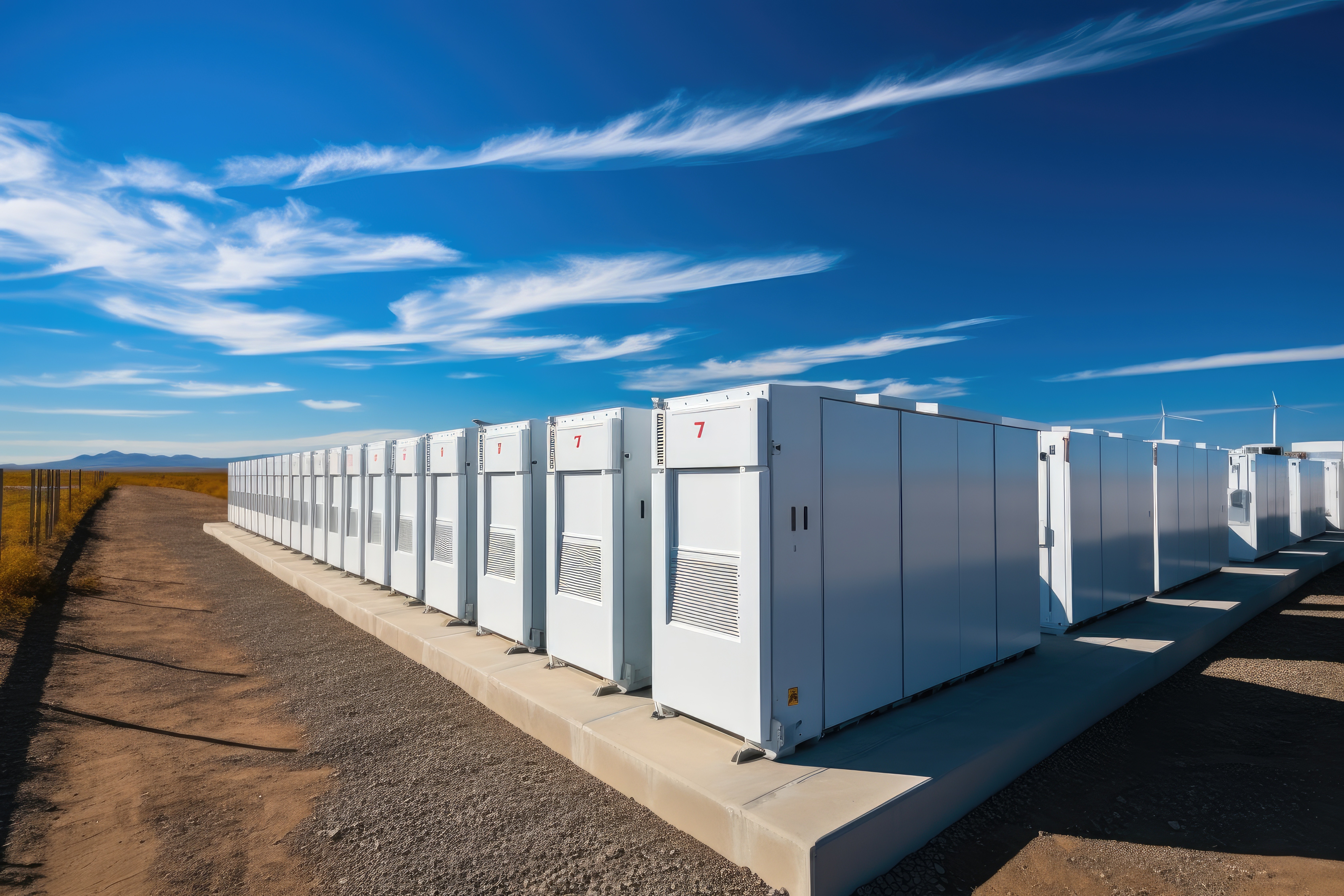
Mar 1, 2025
Energy security is increasingly becoming a priority in today's volatile landscape. Grid independence serves as a crucial foundation for achieving this goal by optimizing the energy mix, enabling countries to manage price fluctuations and reduce dependency on external sources. By integrating a variety of power sources, you can enhance resilience, ensuring a steady energy supply even during outages or disruptions.
Next NRG provides innovative solutions such as Smart Microgrids that transform your energy management strategy. These systems harness diverse energy sources, leading to improved efficiency and reliability. With advancements in AI/ML technology, your energy forecasting can achieve up to 95% accuracy, allowing you to navigate the complexities of energy security and independence effectively.
Wireless EV charging is another pivotal element of energy independence, streamlining energy supply to electric vehicles while reducing reliance on traditional infrastructure. By leveraging Next NRG's technologies, you can build a robust, secure grid that supports national security interests and promotes a cleaner, more sustainable future. Embracing these solutions ultimately fortifies your energy position in a fluctuating global market.
Foundations of Energy Security
Energy security is a multifaceted concept that encompasses reliable access to energy resources, resilience against threats, and the overall stability of the energy supply chain. Understanding its foundations is crucial for developing strategies that enhance grid independence and mitigate risks.
Defining Energy Security
Energy security refers to the uninterrupted availability of energy resources at an affordable price. It incorporates factors such as energy supply stability, the reliability of the grid, and the ability to withstand disruptions from natural disasters or cyber threats. An effective energy security framework ensures that energy systems can recover rapidly from supply disruptions. This can stem from geopolitical tensions or extreme weather events, which increasingly threaten energy infrastructures.
You can also consider energy diversity as a critical element, where a mix of energy sources—renewable and non-renewable—reduces reliance on any single source. Adopting technologies like Next NRG’s Smart Microgrid can vastly improve energy management, emphasizing resilience through the integration of various power sources.
Essential Components of Energy Security
Key components of energy security include grid reliability, supply chain integrity, and proactive risk management. Grid reliability ensures that electrical systems can provide continuous power, particularly during peak demand times or emergencies. Meanwhile, the energy supply chain must be fortified to minimize vulnerabilities to disruptions caused by cyber threats and natural disasters.
Effective energy management tools, such as those developed by Next NRG, facilitate the seamless integration of diverse energy resources. This not only optimizes grid efficiency but also reinforces security. The implementation of AI/ML technology further enhances predictive analytics capabilities, enabling you to anticipate changes in energy demand or generation, thus solidifying your energy security strategy.
Pathways to Energy Independence
Achieving energy independence involves leveraging renewable energy sources and implementing energy efficiency measures. These strategies not only enhance resilience but also reduce reliance on external sources.
Renewable Energy Sources
Utilizing renewable energy sources is essential for achieving energy independence. Solar panels are at the forefront, converting sunlight into electricity efficiently. You can significantly reduce energy costs by installing these systems.
Wind power also plays a crucial role. Wind turbines harness kinetic energy from wind, providing a sustainable energy solution. Both solar and wind technologies complement each other well, particularly when integrated into smart energy systems.
Investing in battery storage technology is critical for managing the intermittent nature of renewables. Advanced storage solutions ensure that energy generated during peak times is available when demand rises. Companies like Next NRG are leading in this area, offering innovative systems that enhance storage capacity while optimizing grid performance.
Energy Efficiency Measures
Energy efficiency measures are vital for reducing overall consumption. Implementing energy-efficient appliances and systems can drastically lower energy use in buildings. Simple upgrades, like LED lighting and smart thermostats, can yield significant savings.
You should also consider insulation improvements to reduce heating and cooling demands. This creates a more comfortable environment while conserving energy.
Next NRG offers smart solutions that integrate energy management across various domains. This integration not only maximizes efficiency but also enhances the reliability of your energy supply. The continuous investment in energy efficiency initiatives supports a shift toward clean energy and contributes to energy independence.
Impact on National Security and Economy
The relationship between energy independence and national security is critical. A secure and reliable energy system fosters economic stability and mitigates risks associated with energy supply disruptions. Understanding this interplay enhances comprehension of energy's role in safeguarding national interests and promoting economic growth.
Energy as a National Security Concern
Energy dependence poses significant national security risks. Relying heavily on foreign sources makes your nation vulnerable to geopolitical tensions and supply chain disruptions. By investing in technologies that promote energy independence, such as those offered by Next NRG, you enhance your ability to manage energy resources, reduce vulnerability, and ensure a steady energy supply.
Smart Microgrids and wireless EV charging solutions are essential in this context, allowing for better resilience against potential disruptions. These systems integrate diverse power sources and optimize grid efficiency, thereby supporting national security objectives. A fortified energy infrastructure can significantly decrease the risks of adversarial influence and promote self-sufficiency.
Economic Implications of Energy Dependence
Energy dependence has profound economic implications, especially concerning American jobs and investment. Dependence on external energy markets can lead to price volatility, affecting business operations and consumer costs. With the right investments in energy management technologies, you can stimulate job creation and bolster domestic industries.
Adopting innovations from Next NRG can streamline the energy supply chain while enhancing the reliability of essential services. For instance, AI and machine learning technologies facilitate accurate predictions on energy needs, ensuring that resources are always allocated efficiently. This not only maintains economic stability but also fosters an environment where job opportunities can flourish. Before we can reap these benefits, it is crucial to address energy vulnerabilities, creating a robust foundation for future economic growth.
Advancements in Energy Technology
Innovations in energy technology are rapidly changing the landscape of energy security. Key advancements in renewable energy sources and energy storage solutions are pivotal for achieving grid independence.
Innovation in Renewables
The shift toward renewable energy is driven by technological innovation. Solar, wind, and hydroelectric power generation are becoming more efficient and cost-effective.
Next NRG is at the forefront of this movement, developing Smart Microgrid technology that integrates diverse power sources. This approach enhances grid efficiency and resilience, enabling reliable energy supply even during disruptions.
Emerging innovations like bifacial solar panels and advanced wind turbine designs improve energy capture and output. These technologies allow you to harness renewable resources more effectively, facilitating a smoother transition to clean energy.
Investments in automation and predictive analytics further optimize the performance of renewable installations. The ability to forecast energy production with high accuracy supports the integration of renewables into broader energy networks.
Energy Storage Solutions
Energy storage is essential for maintaining a steady energy supply, particularly with intermittent renewable sources. Advanced battery storage technologies, such as lithium-ion and solid-state batteries, have improved energy retention capabilities.
Next NRG leverages these advancements to enhance energy management systems. Their solutions ensure optimized output and reliability through precise data analytics, making grid independence more attainable.
Furthermore, large-scale storage systems facilitate greater use of clean energy by storing excess production for later use. This capacity is crucial during periods of low generation, ensuring continuous energy availability.
Incorporating AI and machine learning into energy storage enhances efficiency. Algorithms analyze usage patterns, allowing for dynamic adjustments and maximized storage performance. This integration is critical for both residential and commercial energy strategies, supporting a sustainable energy future.
Environmental Considerations
A focus on environmental factors is critical for achieving energy security. Key areas include reducing carbon emissions and mitigating climate change through renewable energy solutions.
Reducing Carbon Emissions
Transitioning to renewable energy sources is essential for decreasing carbon emissions. Solar, wind, and hydroelectric power contribute significantly to reducing dependency on fossil fuels. By implementing Smart Microgrid technology, you can effectively manage energy production from various renewable sources.
Next NRG specializes in integrating diverse power sources, optimizing grid efficiency, and enhancing resilience. Their systems allow for real-time adjustments that can significantly lower carbon footprints, as clean energy sources replace traditional energy methods. Diminishing reliance on fossil fuel not only helps in meeting regulations but also supports global emissions reduction targets.
Climate Change Mitigation
Climate change is a pressing issue that requires immediate attention. Utilizing clean energy technologies is vital in your fight against climate change. Implementing initiatives focused on renewable energy reduces greenhouse gas emissions.
Next NRG's AI/ML technology supports accurate predictive analytics, ensuring optimal energy generation and usage. This not only improves the performance of solar plants but also contributes to overall climate stability. By managing energy resources efficiently, you can play a pivotal role in climate change mitigation while benefiting from increased energy security and independence.
Frequently Asked Questions
Energy independence plays a critical role in ensuring national and economic security. This section addresses key aspects related to the benefits of energy independence, its implications for national security, and practical strategies for achieving these goals.
What are the key benefits of achieving energy independence?
Achieving energy independence reduces reliance on foreign energy sources. This leads to increased economic stability and lower vulnerability to geopolitical tensions.
Investing in local energy solutions can also create jobs and foster innovation. Sustainable energy practices contribute to environmental protection and reduce the carbon footprint.
How does energy independence contribute to national security?
Energy independence enhances national security by mitigating risks associated with energy supply disruptions. When a nation is self-sufficient, it is less susceptible to external pressures and market volatility.
Moreover, domestic energy production improves resilience against physical and cyber threats. This ensures that essential services remain operational during crises.
What are the primary strategies involved in the U.S. energy security plan?
The U.S. energy security plan focuses on diversifying energy sources, increasing renewable energy production, and enhancing grid infrastructure. The integration of Smart Microgrids leverages multiple energy inputs, optimizing efficiency and reliability.
Utilizing technologies like those from Next NRG can further enhance this approach, promoting sustainable energy management across various sectors.
What are some global examples of energy security implementation?
Countries like Denmark and Germany have successfully adopted renewable energy strategies that promote energy independence. Denmark's investment in wind energy has significantly reduced its fossil fuel reliance.
Germany's Energiewende initiative emphasizes transitioning to a sustainable energy system through decentralized energy solutions. Both examples showcase successful energy autonomy efforts.
How is energy dependence impacting different countries?
Energy dependence often places countries in a precarious position, exposing them to fluctuating energy prices and supply disruptions. This can lead to economic challenges and limit strategic options.
Nations heavily reliant on energy imports may face pressures that affect foreign policy decisions. This can compromise their national sovereignty and broader geopolitical objectives.
In what ways does the Energy Independence and Security Act affect energy policies?
The Energy Independence and Security Act promotes renewable energy development and energy efficiency. It encourages investments in clean energy technologies and sets ambitious targets for reducing greenhouse gas emissions.
This legislation supports innovations within the energy sector, including advancements in Smart Microgrid technologies like those offered by Next NRG, which facilitate the integration of diverse power sources for a reliable energy supply.
Don’t Miss Out
Join our newsletter to get latest insights for your brand growth!





